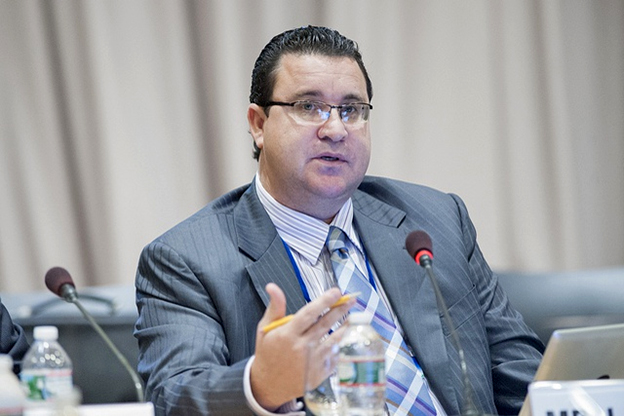The World Bank has approved $103.4 million for Ghana to reverse land degradation and strengthen integrated natural resource management in about three million hectares of degraded landscapes, working with communities of the Northern Savannah Zone and the cocoa forest landscape.
The cost of environmental degradation in Ghana due to unsustainable use of land for agriculture, forests, and mining stands at 2.8% of national Gross Domestic Product as of 2017.
If the current natural resource extraction remains unchanged, Ghana will see its natural resource base destroyed over the long term, with fewer opportunities to sustain growth and shared prosperity.
“"The project will help boost post-Covid-19 economic recovery, create jobs and secure livelihoods in some of the poorest parts of Ghana by focusing on agricultural productivity, ecosystems management and sustainable small-scale mining,” said World Bank Country Director, Pierre Laporte.
The Ghana Landscape Restoration and Small-Scale Mining project will focus on land-use planning for integrated landscape management and promote sustainable mining by helping formalize artisanal and small-scale mining. It will also support sustainable land, water, and forest management activities in the climate vulnerable target landscapes.
“The project aims to place landscapes and mining sector management on a path that would transition from degraded landscapes, poverty, and low productivity toward one of resilient landscapes that optimize the ecosystem functions for better livelihoods and more sustainable economic returns,” said World Bank Practice Manager, Environment, Natural Resources and Blue Economy, Sanjay Srivastava.
The project will also enhance women’s role in local-level forest and landscape management activities, and create better income-generating opportunities. Over 250,000 people will benefit from the project.
"This joint project aligns with the World Bank's Forest-Smart Mining Initiative and will promote forest-smart interventions in the artisanal and small-scale mining sector and strengthen regulatory compliance and sustainable mining practices," said World Bank Acting Practice Manager, Energy & Extractives Global Practice, Zubin Bamji.
The financing includes an IDA credit of $75 million and $28.4 million in grants from the Global Environmental Facility, the Extractive Global Programmatic Support, and the Global Partnership for Sustainable and Resilient Landscapes (PROGREEN) multi-donor Trust Funds.
Latest Stories
-
Dreams FC denies allegations of attempting to sign Najeeb Yakubu
31 mins -
Election 2024: ‘Right to free and fair elections non-negotiable’ – Akufo-Addo
37 mins -
Kurt Okraku took out my passport from the U23 squad that travelled to Japan – Najeeb Yakubu alleges
47 mins -
Where hope fails: Ghana’s decaying home for the destitute
57 mins -
NDC Mining Committee for 2024 campaign refutes allegations of recruiting thugs for elections
1 hour -
Traction Control: A lifesaver with an off switch? Here’s why it exists
1 hour -
I don’t need anyman to woo me with money – Miss Malaika 2024 winner refutes pimping claims
1 hour -
”Kurt Okraku sabotaged my national team career because I refused to sign with Dreams FC” – Najeeb Yakubu
1 hour -
Businesses urged to leverage Generative AI for enhanced customer engagement
1 hour -
MultiChoice Ghana partners with Ghana Hotels Association to elevate guest entertainment
2 hours -
Bawumia’s music streaming app or Mahama’s pay-per-view TV channel?
2 hours -
Karpowership Ghana empowers 40 Takoradi Technical University students with scholarship
2 hours -
We expect significant reduction in prices of petroleum products in coming weeks – CEO AOMC
2 hours -
Betway Africa offers once-in-a-lifetime ‘Play-on-the-Pitch’ experience at Emirates Stadium
2 hours -
I coined the term ‘hype man’ in Ghana – Merqury Quaye
2 hours

